If the Spirit is active and present within every person, then what is needed is a conversion of heart. Are we spiritual beings having a human experience or are we human beings having a spiritual experience, is the famous question asked by Jesuit priest and philosopher Pierre Teilhard de Chardin. I believe it is the former, that we are spiritual beings at our core. But, taking it one step further, I also believe that everything within the Cosmos has a spiritual foundation; that the spirit of the Divine is woven throughout the universe and that God is the weaver.
If it is true that the Spirit is woven through all things and for all time, then there can be none other than a spiritual solution to any problem. In this context, all problems become spiritual problems. A few years ago, I was having an online conversation with a conservative Christian friend about what the bible says on the matter of the division between church and state. My friend – a bible literalists – was adamant that there is a clear demarcation between church and state, citing the new testament passage of Mark 12: 13-17 where Jesus takes a coin with the likeness of Caesar and announces that all should “give to Caesar what is Caesar’s and to God what is God’s.” The question Jesus answered was about paying taxes. What I believe he was getting at is this: What in the cosmos does not emanate from God? If you are arguing over whether the religious should pay taxes, you are focused on the wrong question. If everything comes from God, what does it matter? Pay the silly taxes to keep yourself out of harm’s way – but don’t lose sight of the fact that everything comes from the Divine. From my perspective, Jesus was saying that everything is spiritually focused; that we actually live in a spiritual world but get lost and confused in our worldly machinations. A Quaker F/friend of mine has spent many an anxious moment pondering what can a person do to raise the consciousness of the general public – and of our leaders and decision makers – about the pending environmental disaster unfolding within our lifetime and most certainly within the lifetime of our children and grandchildren. We Quakers believe there is “that of God” within everyone, and that the voice of the Divine leads and guides each of us. If that is true – and I believe it is – then God is at this very moment whispering to those recalcitrant decision makers that the earth is crying out; that they need to pay attention; that they need to act. Now. If the Spirit is active and present within every person, then what is needed is a conversion of heart. What is needed is a spiritual revival to awaken all to the call of the Divine on climate change; on gun control; on voter repression; on race, on equality, and on all other issues of justice and decency. How do we get there, how do we get to this global conversion of heart? We pray… for ourselves, for those who are or will be impacted by these issues, and for the decision makers – that they will quiet themselves enough to hear the faint whisper of the Divine and act on it. Is prayer enough? No. If prayer were enough, these seemingly intractable issues would be resolved. We must listen to the voice of God within our own heart and act on what we hear. We must become models of a people who are spiritually focused and who believe – whole heartedly – that the answer to all problems is spiritual. After all, we are a spiritual people living in a spiritual world, seeking a spiritual solution. Perhaps renowned spiritual leader Henri Nouwen said it best: “Every time in history that men and women have been able to respond to the events of their world as an occasion to change their hearts, an inexhaustible source of generosity and new life has been opened, offering hope far beyond the limits of human prediction.” We must pray. We must act. We must believe that our prayers and actions will be enough. And then, we must give over everything else to the Divine.
1 Comment
There is a lot we can learn from children, if we just open our eyes and our hearts I have the joy of helping to care for our toddler granddaughter every Thursday, and on a recent visit, I was struck by how her words and actions could be translated into solid management techniques. I know what you might be thinking. Many of us have had the unfortunate experience of working for a supervisor who acted like a toddler; who thought only of him/herself or who threw temper tantrums when things didn’t go their way. But that’s not what I’m talking about here. There are positive lessons we all can learn from observing little ones at play. Following are a few examples. Know What You Want and Provide Clear Directions – Any employee who has tried to get a clear directive from a waffling or overtly political manager can appreciate the explicit tone of a toddler. There is no ambiguity about what our granddaughter likes nor in what she wants from adults. “Pop-pop (her name for me), sit here and read the Color book with me.” “You wear the green hat, I want the red one.” “I’m going to hide in the closet, you stay here.” Clear. Simple. Direct. Be Authentic but Don’t Take Yourself Too Seriously – There is nothing more frustrating or disempowering in an organization than a manager that tries to be all things to all people. It is equally important for a good manager to have a sense of humor and to not take themselves too seriously. I’ve worked with managers who put themselves and their career above the good of their employees and the organization causing suspicion a chaos in their wake. That’s not what you get from toddlers who have no guile and who are uniquely comfortable within themselves. Our granddaughter is exactly who she is and spends zero time considering how she may come across to those around her. She will happily place heart and butterfly stickers all over her face and dance around the house feeling all the more special for it. She will make a noise with her mouth and then laugh boisterously over her “joke.” Happy is the organization when a manager can laugh at themselves, acknowledge their mistakes, and move on. Be Kind and Inclusive – A good manager will ensure that everyone is cared for within the organization. Employees will be more loyal to the company and will take more risks if they believe their manager has their back. My granddaughter innately knows this. If we are playing tea party, she makes sure that everyone gets a cup and a cookie. If I’m off in another room and happen to cough, our granddaughter will come running to me to ask “are you OK Pop-pop?” Here’s a real-world story that I wish every manager could emulate. My daughter is a teacher and one day last year her school experienced a “code red,” meaning there was serious trouble in the building. Everything turned out fine, but she was shaken. On her ride home she called me, just to talk. She finished up our conversation saying, “I just want to go home and hug my baby.” My daughter did go home and hug her baby (my granddaughter) who was 15 months old at the time. As she hugged her child, my daughter began to cry. Seeing her mother distraught, our granddaughter took the pacifier out of her mouth and handed it to her mom – knowing intuitively that her mom needed comforting from it more so than she. If a manager showed me that amount of kindness and empathy during a time of turmoil and strife, they would have my undying loyalty. There is a lot we can learn from children, if we just open our eyes and our hearts and get out of our own way. For me, it can all be summed up to this: be honest, be authentic and be kind and everything else will take care of itself. Attend to your own heart I read an article recently that caused me to ponder my own spirituality. The article described how both of the conservative candidates for WI Supreme Court graduated from the same evangelical based law school founded by the TV evangelist Pat Robertson. It further described how Wisconsin judge Jennifer Dorow begins each weekday by reading her bible and praying.
My theology is this: if you open yourself up to the Divine, then you will be led to the work you were meant to do to realize the Kingdom of God on earth. Now. My experience of the Spirit is that the Divine is a God of love, of relationship, of preferential options for the poor, of justice, of mercy. I do not doubt that Judge Dorow’s faith is real. But how can someone who sits in the presence of the Spirit every day come to a place where she says the worst decision by the U.S. Supreme Court was the one striking down Texas anti-sodomy laws which opened the doors for legal same-sex marriage? Is Judge Dorow praying to God and not listening for God? Or, am I listening for God but mistaking my own voice for that of the Divine? Is one of us wrong? Can both of us be right? Can God be leading us both in ways unfathomable to our conventional understanding? I brought this conundrum with me to my Quaker Meeting for Worship where I can hand over my concerns and wait in expectant silence to see if a path forward emerges. On this topic I received a clear and compelling answer; one that is so simple that it made me chuckle to myself while sitting in silence. The answer was this: Don’t worry about it. Don’t concern yourself with why or how others may be led. Simply listen for your own leadings and act on them. Attend to your own heart and give everything else over to God. Given my dreary disposition, it was clear something had to change. I turned 70 this summer, and it wasn’t an easy transition. I found myself thinking about all the potential losses I had in front of me. For example, I’m pretty sure I won’t be around to see any great grandkids and I’m not sure I will be able to “dance at my granddaughters’ wedding” since the oldest is six and the youngest will turn two in December.
I wondered how many years of sailing I have left, as my knees are becoming increasingly stiff and I’m not as nimble as I once was scurrying around a moving boat. I don’t want to become a liability and I don’t want to end up as one of those skippers who can only (and barely) just sit and steer the vessel. My father died at age 66 from early onset of Alzheimer’s disease. And now – every time I forget a name or why I walked down to the basement - I pause and wonder: is this how it starts. I remember being a teenager, lounging in my bedroom reading a Sargent Rock comic book and hearing my dad talking downstairs. I went down to see who happened to visit – only to find my dad reading a book out loud. Now, there were two things odd about this: one, that he was reading a book at all as that’s not something I ever saw him do before or after; and two, the fact that he was doing so – out loud. When I asked what he was doing, he just shrugged it off and said he wanted to “hear how the words sounded.” In retrospect, it is clear that he could feel his mind slipping and he was trying to find a way to stave it off. At the time, Alzheimer’s disease wasn’t commonly known, at least not in the circles I ran with in rural Western Pennsylvania in the late 1960s. You see where this was going. I mentally ran through every malady I knew of in my family’s history and imagined how each was a sentence hanging over me. Will I end up with macular degeneration like my mother– or kidney disease that incapacitated my grandfather? My uncle died from heart failure and my maternal grandmother became senile in her advanced years. Is that my fate? Clearly, as I approached turning 70, I became focused on a life of diminishing returns: one of lost opportunities, physical incapacitation, and mental instability; a life of increased strife and an absence of joy. Given my dreary disposition, it was clear something had to change. Since becoming a Quaker, I have a touchstone reading that helps to ground me. It is from Isaac Pennington – a 17th century Quaker: “Give over thine own willing. Give over thine own running. Give over thine own desire to know or be anything. And sink down into the seed God placed in thee and let that be in thee and grow in thee and act in thee. And know, through sweet experience that God knows that, God owns that, God loves that and will provide your life’s inheritance according to his portion.” For me, this quote reflects a Zen teaching: Acknowledge your feelings and desires, but don’t own them. Give them over and then, focus on the present. Upon contemplation, what I realized is that I have little control over what illnesses may befall me or how long I may live. What I do have control over is my ability to appreciate the here and now: the amount of love I share with my family and friends and my ability to drink in and savor the moments – whether playing with my granddaughters or sailing or sitting in the yard watching the butterflies or talking about the day with my wife over a cup of coffee. I am healthier now than I likely will be in 20 years. The same can be said for my mental capacity or my sailing skills. It is easier for me now to crawl around on the floor with my granddaughters than it will be years from now. From that perspective, I don’t want to waste the joys of the present in painful fear of a debilitated future. Now, I see 70 as the youngest I will be for the rest of my life so I plan on enjoying every minute of it. Or as my favorite poet Mary Oliver wrote: “It is a serious thing / Just to be alive / On this fresh morning / In this broken world.” This is getting serious The crew of sailing vessel IMUA battled wind, waves and broken equipment to win first place in the Cruising Division of the Milwaukegan Regatta; a 50 mile race from Milwaukee, WI to Waukegan, IL. It was a race that saw nearly 60% of the fleet drop out due to weather. The weather forecast for race day was ominous. Meteorologists were calling for rain, possible thunder storms with SSE wind gusting to the mid-20s causing 4-6 foot waves. The forecast was the subject of much discussion among the race committee on Friday evening, as they contemplated postponing the start from Saturday to Sunday, but decided to proceed because of all the logistic complications a postponement would bring. Our start was set for 8 am on Saturday morning. The four of us on the team arrived at 6:30 in order to stow away gear, do a final boat check, and get underway so we could motor the 1.5 miles to the start line. We arrived at the start line by 7:30 as planned and checked in by radio with the race committee. As our start time neared, we hoisted sails and shut off the motor so we could test the conditions and craft a starting strategy. We were definitely in heavy air but not up to the mid-20s as predicted and the waves were a manageable 2-3 feet, so we decided to start with a full set of sails. As our five-minute start sequence began, we tacked and jibed in order to position ourselves for a start at full speed and in clean air. We had a good start, first off the line, but further down than we hoped. Our first dilemma came up fast, as one of the double-handed boats in the division that started in front of us was foundering and began drifting right into our path. We hailed them, but as we got closer we realized they were in trouble and we ducked under them – losing valuable distance and time. Shortly after the start, the wind began to build quickly and it felt like the gusts were certainly in the low to mid 20s. As the wind increased, so did the waves. We buried the rail of the boat several times as the edge skimmed under water and the helmsman used both hands on the tiller, like he was rowing with an oar, to keep the boat edge out of the water and moving forward. The skipper asked for the mainsail traveler to be dropped so we could spill wind and stay more upright, as the swells grew larger and came in batches of three to five consecutive waves, one right on top of another. With the waves coming in batches the helmsman could surf some of them but not all, and eventually the boat would crash from the top to the bottom of a six foot wave. The team thinks it was one of those crashes that bent the boom vang extension to a 90 degree angle. There was nothing we could do about the Vang, but cross our fingers and hope that the bend wouldn’t inhibit the mainsail from tacking when needed. It was at this point that the skipper said “this is getting serious” and called for the mainsail to be reefed, shortening the amount of sail exposed to the wind in order to reduce heel and make the boat a bit easier to steer. For this race, the boat was equipped with safety lines and the crew all wore harnesses, so that anyone leaving the cockpit could attach a tether to their harness and the other end to the safety line which would prevent them from going overboard in the wind and the waves. Kurt volunteered to clip in to the safety line and crawled to the mast so the crew could reduce sail. Jake and Wayne stayed in the cockpit ready to lower the main halyard when Kurt was ready. I struggled to surf up the crest and down the trough of each wave, trying to keep the boat from violently crashing down a wave while Kurt was at the mast. The reef was done without a hitch and Kurt crawled back to the cockpit – wet from the waves - but safe. The wind and waves weren’t subsiding and The strategy was to stay on this starboard tack long enough so that when we did tack over to port, we would be aligned with the finish and we wouldn’t need to tack again until the end. It was early enough in the race that we could still see plenty of boats around us. We were even able to pick out one of our competitors who was a bit ahead. After 2.5 hours of hard sailing at the tiller I was tired. My shoulders hurt, my hands were stiff and my jaw ached from clenching my teeth. Kurt, an experienced long distance racer, took his turn at the helm, trying to keep ahead of the waves and fighting the wind. Shortly into Kurt’s watch, we saw one, then another of the fleet give up the race and turn around. I’m sure we all thought about doing the same. I know I did, but no one said a word and we sailed on. We drew even with our competition, but they were more than a mile east of us. They tacked onto port and headed west, eventually passing in front of us. We discussed tacking to cover them, but decided that we liked where we were and stayed with our strategy, slogging through the waves on starboard tack. This was a long race and we couldn’t avoid using the head down below. As the boat sailed on a 30 degree angle and bounced around with the waves, it was a struggle to peel off your foul weather gear and get to the head. Three of the four of us came back from our respective trips below, feeling nauseous. I couldn’t eat for the rest of the day and only sipped on water in order to hold off another trip to the cabin. All but Wayne – who seemed impervious to the sea state below – avoided the trip at all costs. By avoiding drinking water, we risked becoming dehydrated, but the alternative was to risk sea sickness and all that entails. Not a good trade in our book. We were about 10 miles east of the shoreline when the wind began to slow and then shifted to our bow, forcing us to either tack or fall off. This wasn’t the place we planned to make our tack for the finish but decided we should take advantage of the lift we would see on the other end of the tack. We called for a tack and crossed our fingers that the bent Vang would accommodate. It did, and after the tack we shook out the reef to increase our sail area. This felt good. We peered below us and to the west to see if we could spot our competition. They were no where around. Did they surge ahead? Did they fall hopelessly behind? Did they abandon the race? We didn’t know. What we did know is that this was the best ride of the day so far. Jake and Wayne took their turns at the tiller as we either picked up speed or slowed down with the fickle wind. It was surprising how quickly the waves changed with the wind speed; growing when the wind picked up and shrinking when the wind lessoned. And it was like that for the remainder of the trip.
Finally, we could see the finish line off on the horizon. We had been trailing a boat that wasn’t in our division and found ourselves mirroring their path. It was clear that we would need to do two more tacks in order to cross the finish line, which we did. We finished the race in 10.5 hours. We saw one boat finish about 15 minutes in front of us and another about 15 minutes behind us, but neither was in our division. We had no idea where we finished in the standings. We were just happy to have safely arrived. Later that evening, after we settled the boat and ate supper, we walked to the Waukegan Yacht Club to take advantage of the free beer they provided to the racers. It was in the bar that we ran into the crew of the competitor boat we had been watching all day. We learned that they finished nearly two hours behind us. We figured we had a good chance to trophy after hearing that, but we never really dreamed it would be first place. We were happy but tired and a bit beat up, so we decided to motor sail the 8 hours home the next day. During that trip Wayne looked up the results on his phone and announced: IMUA – first place in the Cruising Division. We competed in challenging conditions. We pushed ourselves beyond our comfort zone and we didn’t give up – even though each of us contemplated doing so. The win felt like an affirmation. After all, the name of our boat is IMUA, which is Hawaiian for “go forward with spirit.” No miracles will be forthcoming other than the ones we create on our own. The war in Ukraine has caused many of us to struggle with the Quaker Peace Testimony. Below, I share some of the questions that arose in my own discernment, the act of which brought a sense of peace with where I have landed on the Quaker Peace Testimony.
Is God active in the world – performing miracles – in answer to human prayers? With this theology, one may be able to support the Peace Testimony at all cost. If we pray earnestly enough, and often enough, and in community with as many people as possible, will the Divine answer our prayers and convert the heart of Vladimir Putin or his soldiers and generals in the field to halt the war? Is prayer and the rock solid belief in prayer the answer to this carnage? Do we believe that Ukrainian mothers and fathers and children and soldiers and clergy are already praying fervently – hour upon hour – day upon day? Do we believe that others around the world are also praying with heartfelt intent to petition God to end the war? I suppose the basic question is, why does the Divine need our prayers and petitions in order to act? In fact, Jesus tells us “your Father knows what you need before you ask Him.…” (Matthew 6:7-8) I suspect there is no scarcity of prayers, and that God isn’t in need of guidance from us in order to know what to do. Which led me to the next set of questions. Is God’s plan somehow unfolding with Russian aggression against the Ukrainian people? We hear some version of this tenet often in sayings like: “God doesn’t give us more than we can handle,” or “The Divine has a plan and who are we to question it,” or “God’s plan will unfold eventually, we must remain prayerful and patient,” or “There is certainly evil in the world because of mankind’s dark impulses and God-given free will, but goodness and light will overcome.” If the Russian invasion of Ukraine is somehow the result of God’s plan, then perhaps yes, I could stand firmly with the Peace Testimony, knowing that the Spirit will prevail. I suppose on a macro level one can argue for the idea of “God’s Plan” but to me it seems cruel on the micro level. For example – why does the Divine choose some children to die from leukemia while others survive? Same for every other cancer victim and cancer survivor. Why do some people walk away from a car accident while others die? Why do some people die from a bombing attack while others survive? Is God picking sides? Are those who died somehow unworthy of God’s love and protections? Are they paying for the sins of their fathers – from generations long gone? What if God is not directly active in the world? I had a “dark night of the soul” moment a short while back when I came to the realization that it is we who must choose the Divine in order to bring forth the kingdom of God on earth. We are already chosen. The Spirit is already within each of us, but that’s the full stop of it all, that’s where everything ends – according to my spirituality. The spirit of the Divine is infused into every molecule throughout the cosmos – from the furthest galaxy to the microbes under out feet. And that spirit is emanating love. That spirit is love, a love that each individual can choose to believe in and embrace or to ignore. For me, the freedom to ignore the spirit of God is how we end up with evil in the world. It is how we end up with greed and murder and war. Some choose to not embrace the spirit of God within, and to act on the impulses of the ego. The spirit hasn’t gone away – it is just drowned out by the self-driven cravings for possessions, money, prestige and power. For some, the siren call of the realm is louder than the soft whisper of the inward teacher quietly calling each of us to manifest God’s love. For those of us whose faith is formed by an understanding that the spirit of the Divine is already present but, that each of us is free to embrace or ignore it , then helping Ukraine to arm itself in defense of an aggressor intent on violence, destruction, and domination makes sense. We don’t need to pray for God to be present because the spirit of God emanates throughout the cosmos, softly exhorting each of us to manifest love. We cannot wait for the Divine to intervene into the matters of the world because God is already doing so, but only through our actions. No miracles will be forthcoming other than the ones we create on our own. There is certainly “that of God” flowing freely through us all, including both the Russians and the Ukrainians. Some choose to embrace that love while others choose to ignore it in favor of amassing worldly gains. Some believe it is an act of love to recognize the Spirit within each person and thus to oppose all acts of war. Others – like me – believe that it is a greater act of love to aid those who are fighting – in real time – to protect the innocent. It is difficult for me to support the idea of treating the aggressors and their victims alike. I will always come down on the side of the victims. I can’t fathom loving someone so much that I am prepared to relegate them to slaughter rather than supporting them to take up arms and defend themselves I have to confess, that loving the SOB in the Lexus wasn’t my first reaction…or my second…or my tenth. I had an encounter that made me angry. And every time I thought about that incident for weeks after, I got angry all over again. Clearly – a lot of unfinished business here.
The episode occurred as I was picking up my five year old granddaughter from school. We were parked on the side street adjacent to the school. We got in the car, and as my wife was in the back seat buckling in our little one, I was preparing to drive away. A car rolled up next to me just as I turned on my blinker to pull out. I waited for them to pass, but they pulled directly in front of me and then backed up. I had my blinker on and I honked my horn as they were backing up – clearly trying to signal that I just needed to pull out. But the car proceeded to back so closely that I was blocked in. I honked again and threw up my hands asking – in effect – WTF? No response. My inclination was to walk over to the car and ask them to let me out, but knowing my own state of mind and how the other driver didn’t seem to care, I decided that causing a confrontation in front of my granddaughter wasn’t worth it. So, I sat and fumed. What made matters worse was that the car blocking me in was an expensive, Lexus SUV. So as I simmered in anger, I imagined the owner to be a white, wealthy, and entitled SOB. Not my most Quakerly moment. I have since spent time in prayer and reflection trying to understand the seeds of my anger. Part of it is the anger I inherited from my father who was openly suspicious of anyone in a position of wealth and power. His anger rested in the fact that his family was made homeless after his father was killed in a coal mine explosion and the coal company evicted his grieving family - a widow with five children - from the company house and cut off credit to the company store. But there is more going on under the surface with me than the latent anger inherited from my father. My anger also grew from a sense of powerlessness I felt. If I wasn’t willing to cause a confrontation, then there was really nothing I could do but sit and seethe and wait for the offending car to leave. Another source of anger I identified was a sense of sorrow for a loss of community, and of a lack of support for the common good. I found myself grieving over a way of life that seemed to be swiftly washing away. Things like civility, honesty, community, common good, respect, caring, democracy, all words that once defined the best of America in the not so distant past, now seem quaint… and meaningless. As I sat and pondered over this sense of loss, I realized that the words I used to define a longed for past, are the very same words used to describe the same sense of loss also felt by those who so ardently support the movement towards the far right and towards autocracy in America today. They too feel that the country they knew and love and felt secure in, is being quickly eroded by the “radical left”, by immigrants taking their jobs, by a drug epidemic that ravaged their community, by urban machines that “steal” elections, and so much more. Ironic isn’t it? That if one digs deeply into the feelings of angst and anger, be it a farmer from Elroy Wisconsin or a store clerk on Burleigh Street in Milwaukee, we find a common sense of loss of community and a common sense of a loss of power to affect change. Feelings of anger and powerlessness seem to predominate in our culture at this moment. Black and Latinx anger certainly were on in the streets during the 500+ protests throughout the summer of 2020. White anger seems to have driven the failed coup attempt on January 6th. If you have friends on Facebook who are conservative, you can see the almost daily posts of anger over a loss of culture and country expressed on the memes they share. Where will it all end? How do we begin to heal? Does it all have to come crashing down before we are shocked into a time of mass healing? I know that the answer to my anger is love. But I have to confess, that loving the SOB in the Lexus wasn’t my first reaction…or my second…or my tenth. In fact, it wasn’t until deep reflection that I even considered love as an answer. The only thing that stopped me from an angry confrontation with the Lexus driver was the love I have for my granddaughter. I didn’t want to be a poor example of how to handle my frustration in her eyes. What would have happened if I would have sat in my car and thought about ways to show love to the Lexus owner instead of fuming and heaping assumptions of privilege upon him? Would I have felt my anger bubble up again and again each time I remembered this encounter? What would have happened if I would have simply prayed – asking for guidance on how to proceed or how to perceive the whole thing in a more divine light? If showing love for our enemies is a step too far, perhaps then prayer is the best answer. I don’t mean prayers for God to make everything OK or for the Divine to right all wrongs. I’m talking about a more basic kind of prayer, one that asks for simple guidance. Perhaps the best prayer is this: “Lord, I know your light is in my heart. Help me to let it shine on this moment.” Such a prayer puts the onus on us to become the light of God in the world. It takes us from a point of powerlessness and anger and moves us to divine action. Now that’s an example I’d be proud share with my granddaughter. The picture of the Milwaukee Community Sailing Center Ensign fleet was taken by Charlie Markman. I wrote the accompanying poem. Those who know me well might say there is more of me in that poem than there is about the sailing vessels. But, isn't that true of most poems and their authors?
the number of children who have been infected with the Covid virus has grown astronomically Covid cases among Wisconsin children ages 4 – 8 increased a whopping 944% between early June to early August. Case increases among other Wisconsin childhood groups was in the 400% - 500% range. Talk about canaries in the coalmine. If we had seen a nearly 1000% increase in childhood shootings or abuse or car accidents – would we have such a tepid response?
The Wisconsin Department of Health Services reports that between the week of June 6th and the week of August 4th, the number of children who have been infected with the Covid virus has grown astronomically as show in the accompanying chart. When I look at what is occurring with kids in Wisconsin, I struggle with my anger against those who refuse to get vaccinated, and I think I’m not alone. My Quaker sensibilities tell me to just get over it and seek to find the grace within each person. But that’s harder than I thought it would be. I have two granddaughters, ages five years old and seven-months old. Their parents – and my wife and I – do everything we can to protect them from getting infected and thus far we’ve been successful. But we know that with the Delta Variant now representing 80% of those infected in our region, and less than 50% of the population fully vaccinated – there is only so much we can do; especially with one granddaughter in daycare and the other in summer day camp and just weeks away from starting school. I am angry and I am fearful. I understand that we can’t paint all of these vaccine nay-sayers with the same brush. After all, some are motivated because they don’t want to put foreign substance in their bodies. Others do so out of fear or mistrust of the government because of past abuses. Many are simply being misled and their true fault is placing their trust in people who use them for personal and political gain. But that doesn’t excuse those who know better but who are promulgating false and misleading information about the vaccine for purely political reasons. As my mother would say “there should be a special place in hell for those people.” But since I don’t believe in hell I find no solace in the prospect of biblical retribution. And so, as a concerned grandparent, and as a Quaker what can I do? What can we – as a community – do? Here is my thought. I’m going to ask everyone I meet if they are vaccinated, and if not, I’m going to provide them with some version of the following information. Maybe I should print up business cards with this information and hand it to them.
The solution is simple: Get Vaccinated. Protect Wisconsin Children. And spread the word. |
AuthorMike Soika has been a community activist for more than 30 years working on issues of social and economic justice. His work for justice is anchored by his spiritual formation first as a Catholic and now as a Quaker. Pre 2018 Archives
|
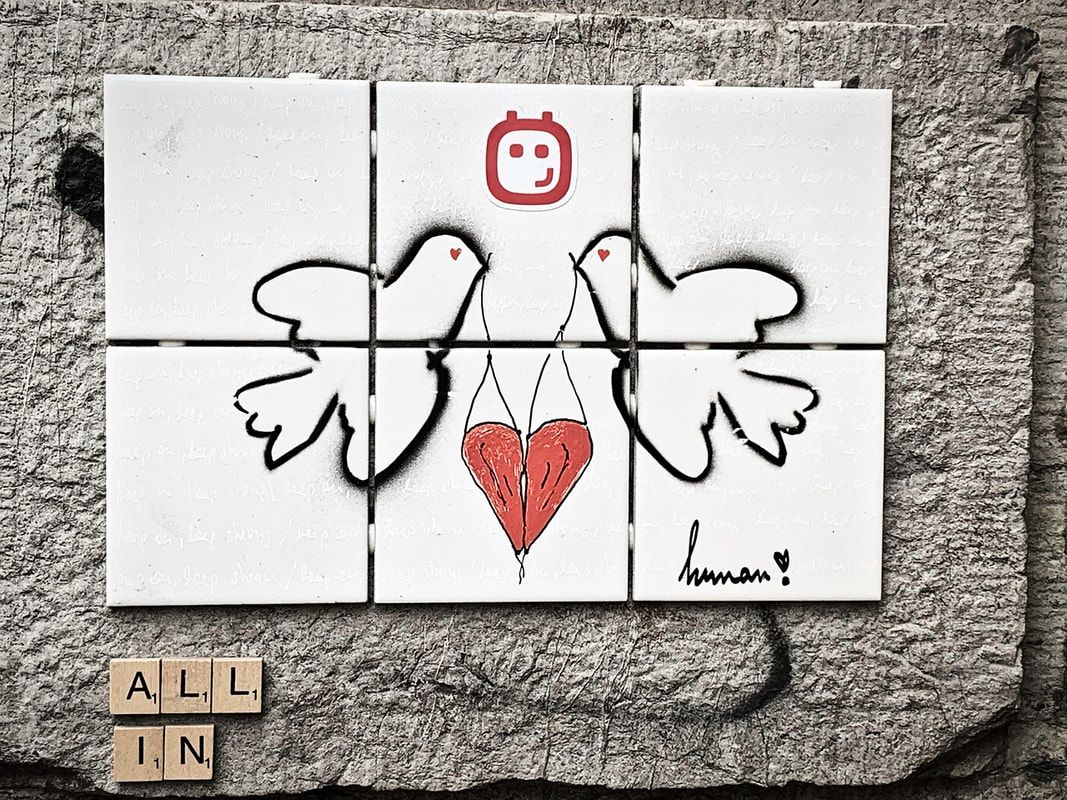
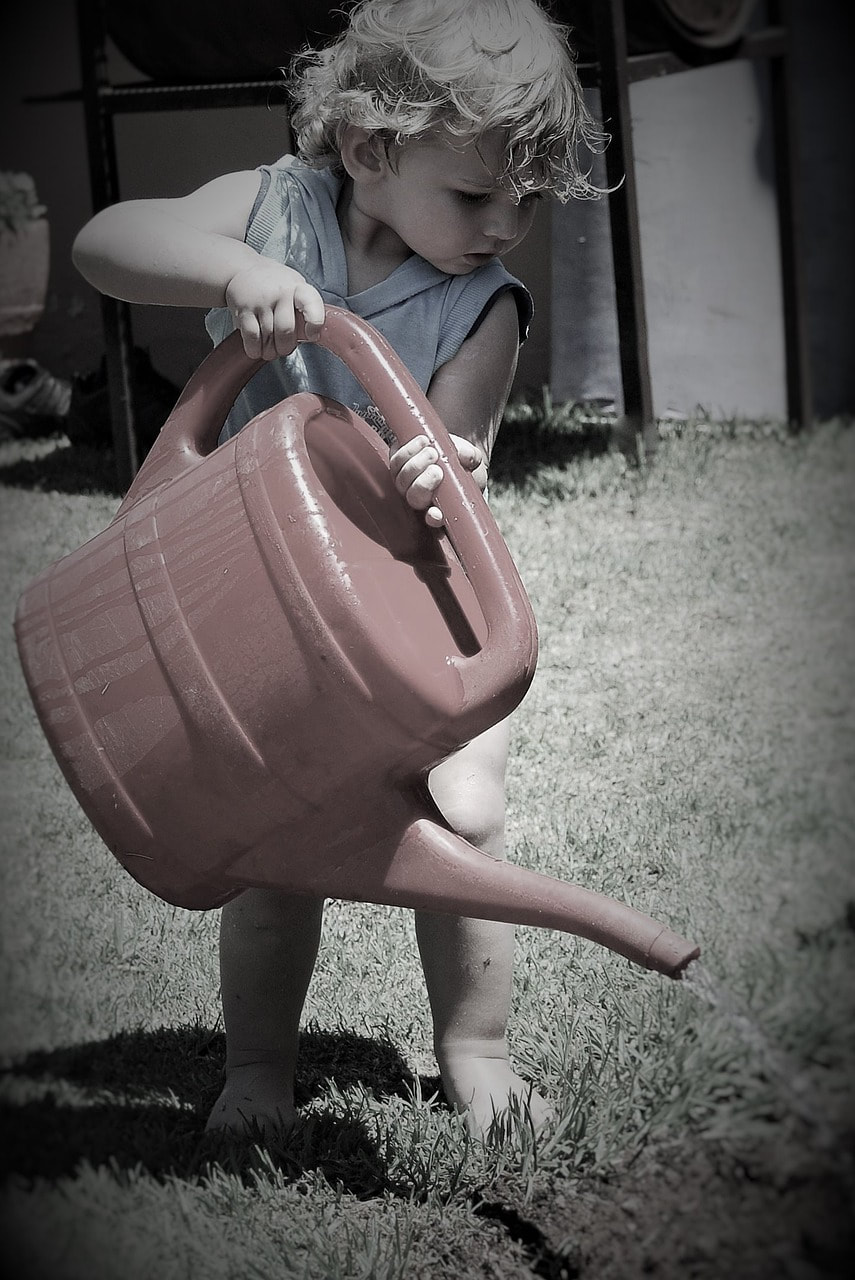
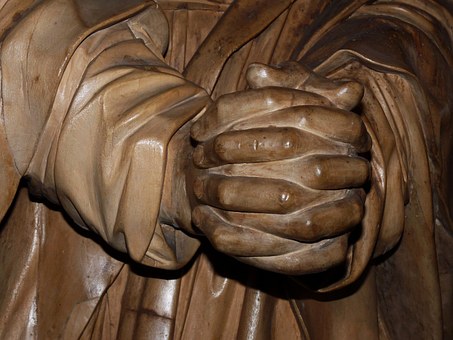

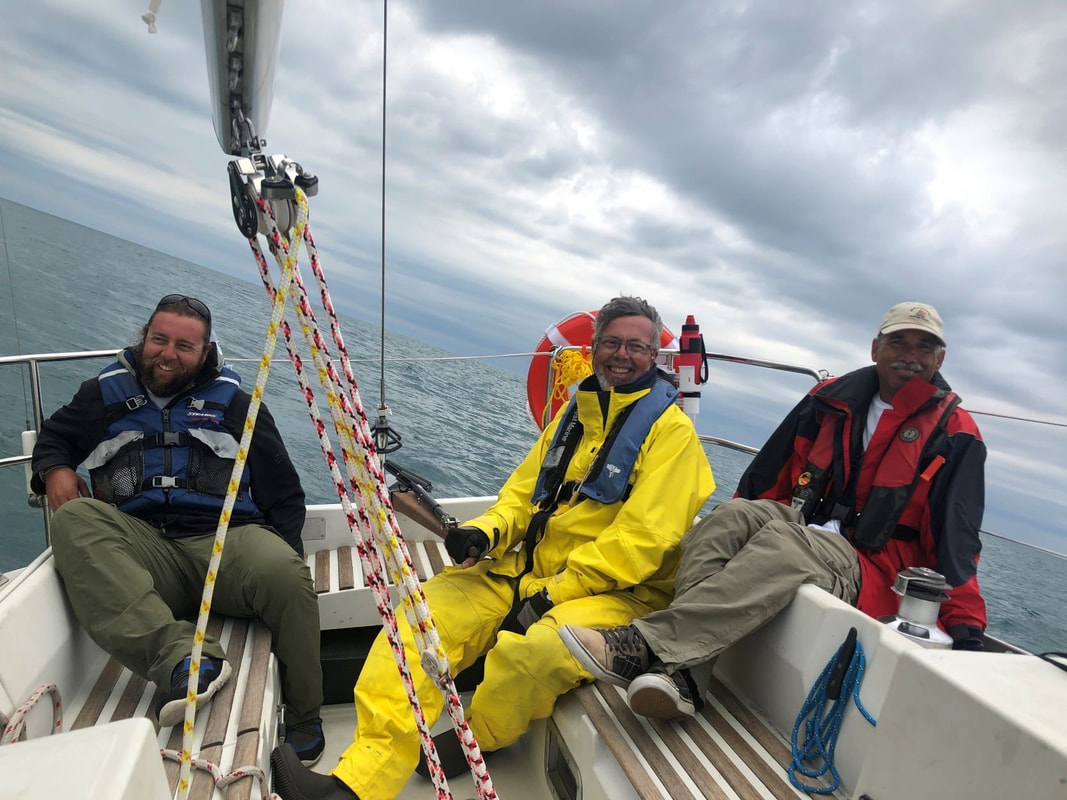


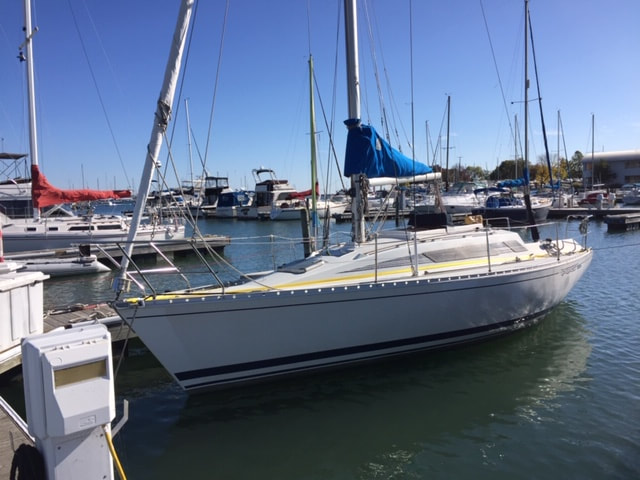
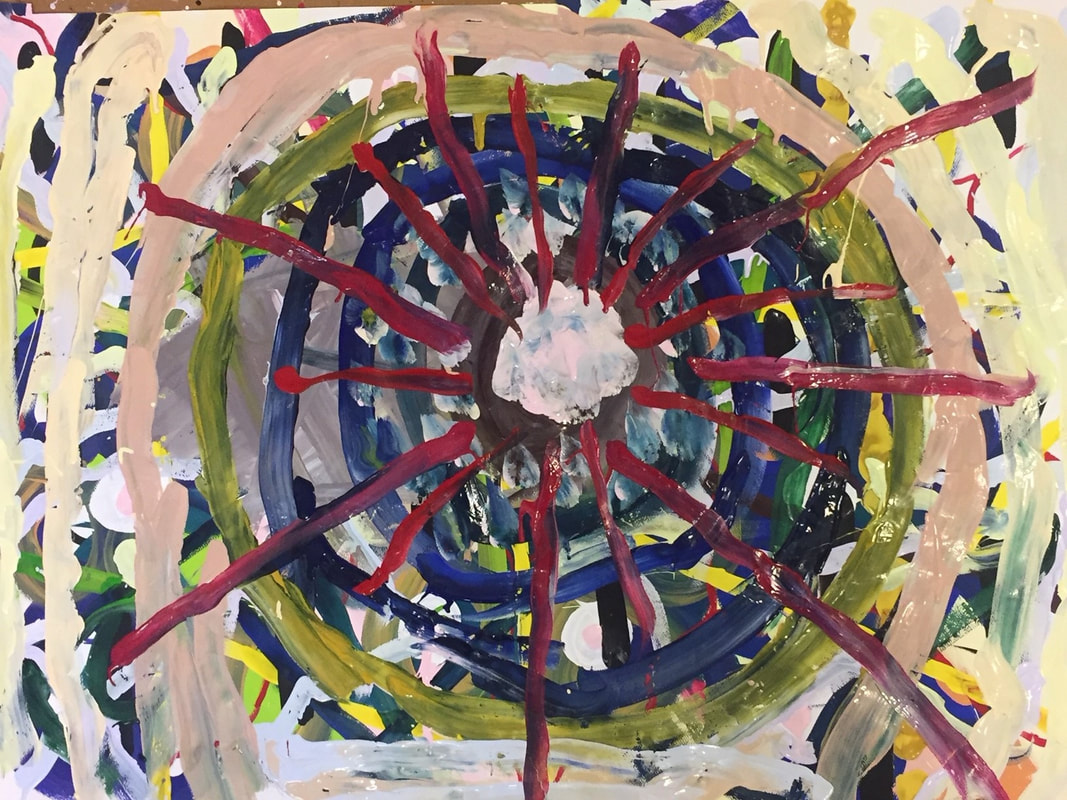

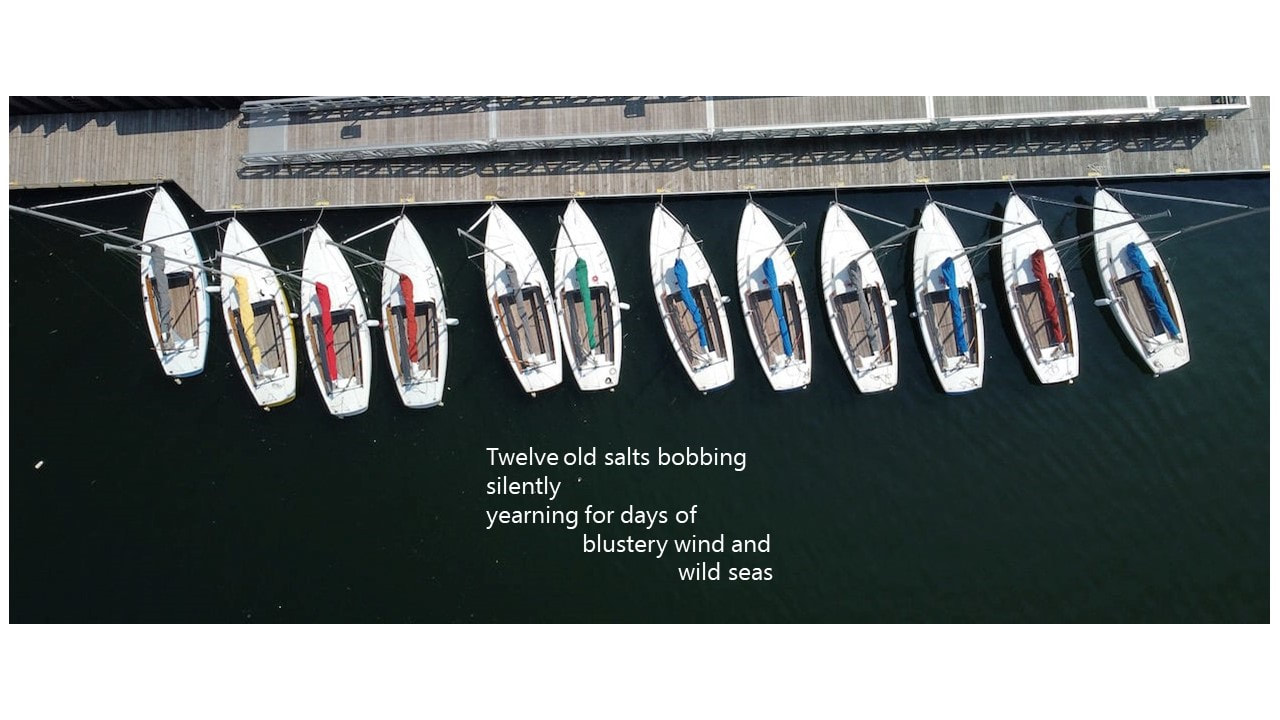
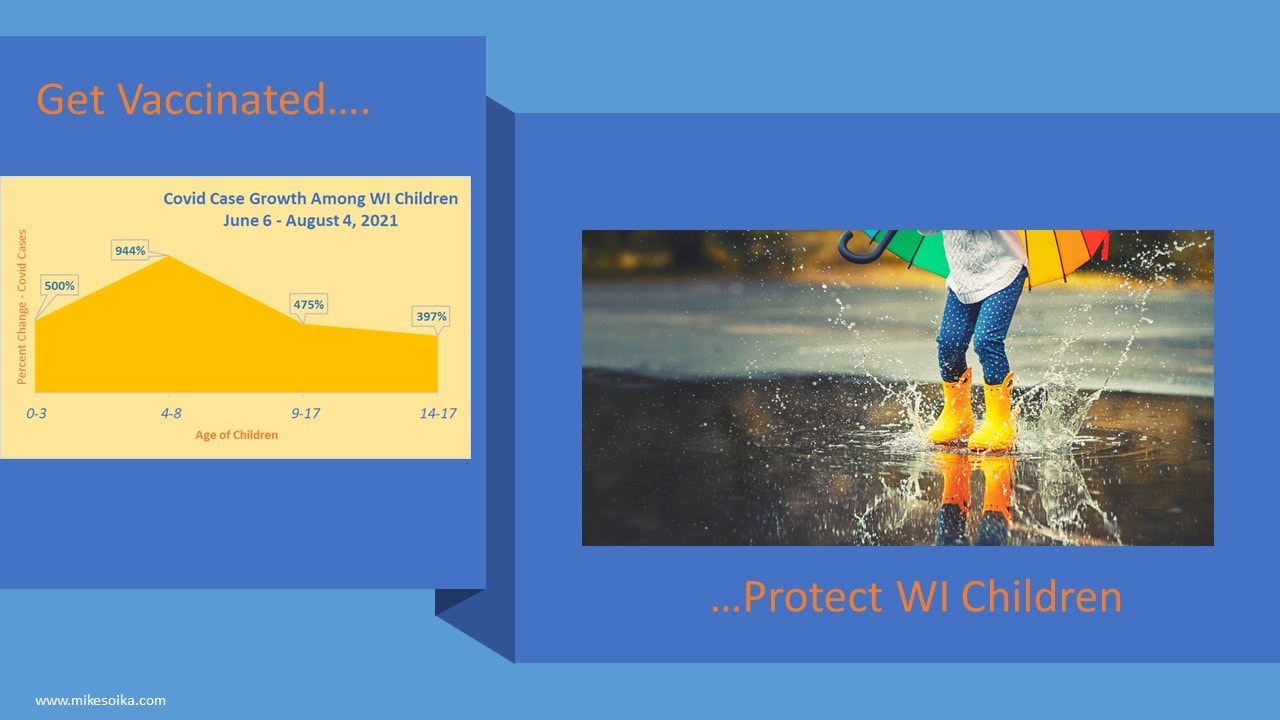
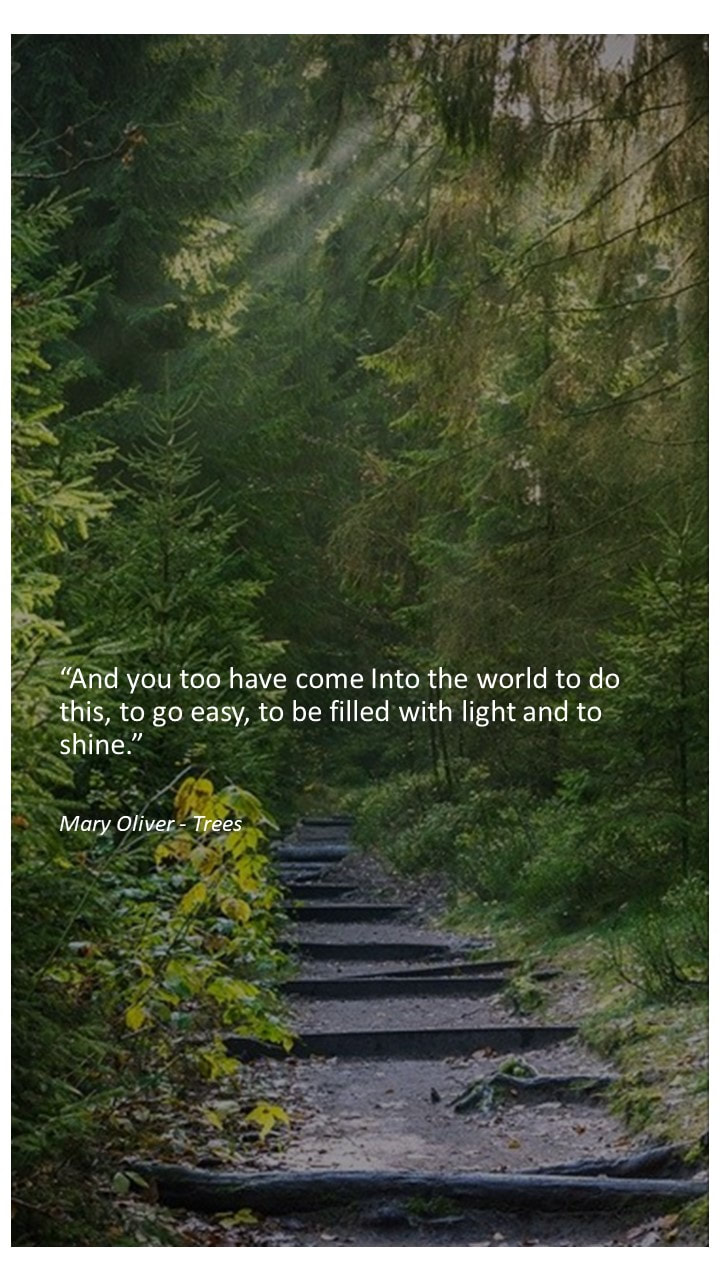
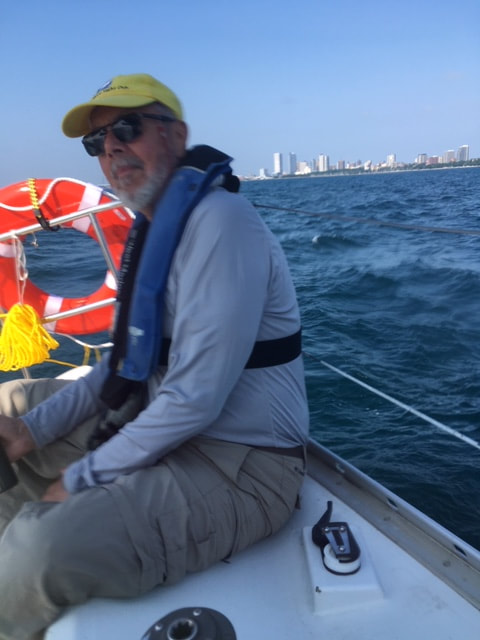
 RSS Feed
RSS Feed
